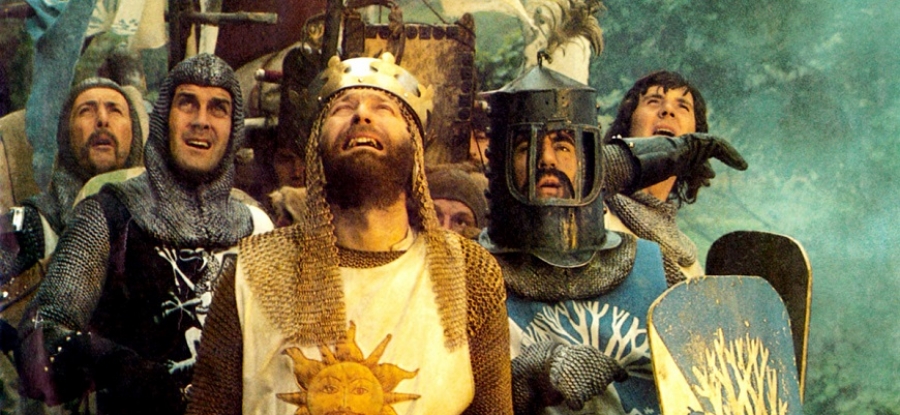Perhaps because I am a showman and juggler I am just over-sensitive to this. If there is any job people think anyone could just do it is performing, conveniently ignoring the years of training and shows that go into learning the craft. To suggest that because I perform (in schools, admittedly) for children that I could step off the stage and into the classroom is to entirely misunderstand the"I would probably suggest two to three students at most – committees kill comedy!"broad skillsets required for the two different jobs. I get to perform for a different group every day. I am not invested in the lives of one group of students for a year or more, responsible not just for their academic education, but also to a large extend in their social and behavioural education. I get to perform and then leave, so I can have fun without the need to ensure I can fall back on a serious persona next time an event requiring that happens. I am not a teacher, and I could not just step off the stage and into a classroom.
All of which is by way of introducing the fact that I am fundamentally unqualified to tell you how to teach a class. When I was approached by Innovate My School I wondered how I could apply what I do to teachers in the classroom, and allow what I do in sixty minutes on stage to flow over and become something for a class to use to help learn History. Then I realised I didn’t need to! You are the teachers, you know your jobs better than I ever can. So rather than me trying to presume to know what will work in your classroom, I will offer some thoughts, and let you decide what fits in your school or classroom! All of these are based on methods that I use whenever I am sitting down to write a new show or book.
Comedy is King!
I love comedy, and I use it a lot, in many situations. When something makes us laugh, it is triggering an instant emotional reaction, and emotional reactions aid memory. When you find something funny, you may not remember the exact wording of a joke, but you will remember the theme.
In writing a joke, a whole skillset comes into play. When you try to write a joke about a particular topic you need creativity to see the possibilities, but you also need attention to detail to find the small parts of a story which will lend to a joke. The final part is to condense the information in the funny situation into as few lines as possible and to transform that into some form of joke structure, the simplest being a set-up and punchline. In television, this can be most readily be seen in satire programs. If you watch half an hour of Mock the Week or Have I Got News For You you can learn a lot about politics purely through the themes of the jokes – I know I do.
So why not take that and apply it to History in a classroom? Perhaps divide your students into groups (don’t go for large groups, I would probably suggest two to three students at most – committees kill comedy!). Give each group one single historical fact, or a paragraph or two about a historical subject or figure, and set them the task of writing one short joke based on the information they have. Once this is done, try out the jokes on the class! I would suggest that you gather in all the jokes and deliver them yourself rather than have students read their own – this lends anonymity to each joke, and also stops a student’s nerves or reading get in the way of the laugh that will be the key to success. Remember, a good delivery can get any joke over the line!
To extend the project, and especially for older students, why not have them work on a two minute stand-up routine or sketch based on the subject. The only unbreakable rule has to be that the history is included and that it is accurate! This could create a fun, memorable lesson – and also help get those facts written and researched in a way that is a little different that writing an essay!
I know that schools these days are embracing technology! The wonderful Amy Kingsley (@misskingsley85), whom I know has written popular articles here, is often showing how technology and video can be used in the classroom – so why not create your own comedy-history video? A real way to keep the learning going!
Personal Stories
History tends to be taught in grand sweeping subjects – the First World War, the Egyptians, the Romans, etc – and so it has to be. In order to get a baseline in any of these subjects you have to look at the big picture. The trouble is that we don’t live in the big picture – even in the modern world and our own lives we can only focus on our daily lives and the things that we come into contact with, in whatever way. If you watch any appeal on television - Comic Relief, any advert for Oxfam etc - you will see that the best appeals for these kinds of charities don’t give facts and figures, they show you individual people. That is because we can connect on a personal level to an individual in a way that we can’t with a large number of people.
It is the same when dealing with History, Focusing on an individual is going to come far closer to us and worm its way into our thoughts than everything we can read about millions of people. I have read many books about the terrible events of Auschwitz. I have read about the number of people who met their deaths within the walls of the camp, and seen the black and white photographs of bodies piled high, and it makes me sad every time. I have met one man who was there, and who I heard tell his story, and that makes me cry and affected my life more than all of the stories of millions. A personal connection with one person will always have an effect on us, and focus our minds.
When you look into topics therefore, it can help if you can find individuals, common people, whose stories the students can look into personally and learn about. Not necessarily famous names – a Henry VIII or even Florence Nightingale are very worth studying, but the very name recognition sets them apart from us in the way we often view celebrities in a slightly different light. Find, or let the students find, lesser-known individuals, and form a connection to that person. You will be amazed where that can lead.
Adventure
"Indiana Jones himself influences the bullwhip tricks in my own work."
I make no secret of the fact that two of the biggest influences on my love of history, from a very young age, were archaeologists. Howard Carter and the discovery of the Tomb of Tutankhamun was one of my earliest influences in that respect. This was preceded by the fedora-topped, whip-cracking Indiana Jones, who also influences the bullwhip tricks in my work (although, sadly, not in the school shows, owing to far too many jealous headteachers trying to borrow it to help keep staff in line!). I am glad I learned about these two characters, real and fictional, because they linked forever in my mind the words ‘history’ and ‘adventure’. History is a search for facts, a search for the past, and this is a glorious adventure. It is far more fun to go looking for the history of subjects than to be given a book and told that if you read it you will know what you need to know.
It may take a bit of prep work, but why not, next time you start a new history topic, try starting the topic with a treasure hunt? You may have been at a family do or similar where you are given a clue, and have to solve it to find the next clue, and so on. That is history in a nutshell, and with a little planning – and perhaps some teamwork to throw a little competition into the mix, could set you well on your way to inspire an interest in history through adventure, and make research about discovery and not just about finding the sentence you need to complete an essay. I always look at history as a treasure hunt and as an adventure – why shouldn’t your students?
Thank you for taking the time to read my thoughts. I would love to hear about any attempts you make to try out anything suggested above, be it reports on your treasure-hunt-history successes, or tweets to let me know where your history videos are spreading history through comedy!
Have you employed any of these tactics? Let us know below!


















